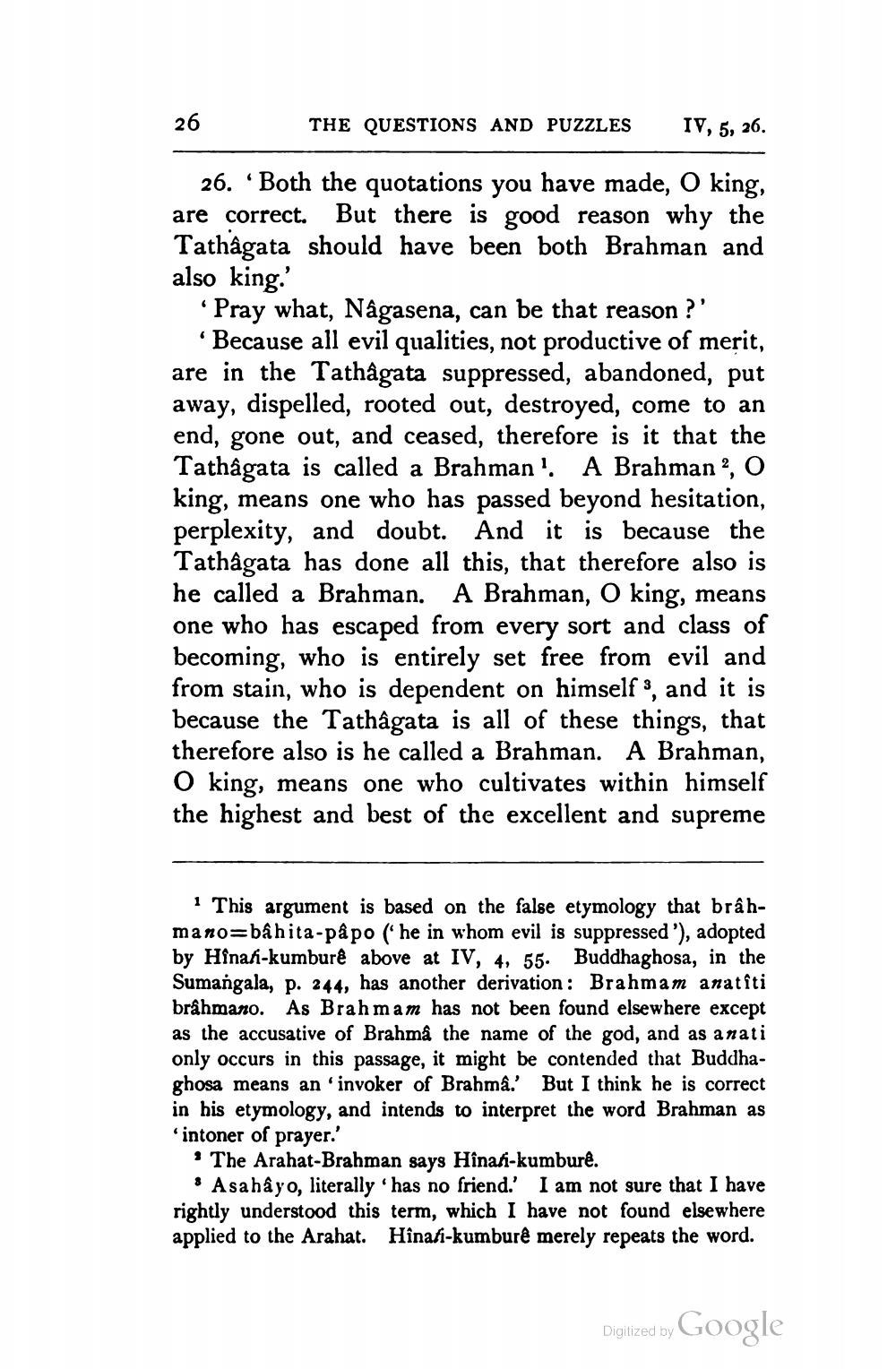________________
26
THE QUESTIONS AND PUZZLES
IV, 5, 26.
26. Both the quotations you have made, O king, are correct. But there is good reason why the Tathāgata should have been both Brahman and also king.' * Pray what, Nagasena, can be that reason ?'
Because all evil qualities, not productive of merit, are in the Tathagata suppressed, abandoned, put away, dispelled, rooted out, destroyed, come to an end, gone out, and ceased, therefore is it that the Tathagata is called a Brahman'. A Brahman ?, O king, means one who has passed beyond hesitation, perplexity, and doubt. And it is because the Tathagata has done all this, that therefore also is he called a Brahman. A Brahman, O king, means one who has escaped from every sort and class of becoming, who is entirely set free from evil and from stain, who is dependent on himself s, and it is because the Tathagata is all of these things, that therefore also is he called a Brahman. A Brahman, O king, means one who cultivates within himself the highest and best of the excellent and supreme
1 This argument is based on the false etymology that brâhmano=bâhita-påpo (he in whom evil is suppressed'), adopted by Hinah-kumburê above at IV, 4, 55. Buddhaghosa, in the Sumangala, p. 244, has another derivation: Brahmam anatîti brahmano. As Brahmam has not been found elsewhere except as the accusative of Brahmå the name of the god, and as anati only occurs in this passage, it might be contended that Buddhaghosa means an 'invoker of Brahma.' But I think he is correct in his etymology, and intends to interpret the word Brahman as intoner of prayer.' • The Arahat-Brahman says Hînati-kumburê.
* Asahayo, literally has no friend. I am not sure that I have rightly understood this term, which I have not found elsewhere applied to the Arahat. Hinafi-kumburê merely repeats the word.
Digitized by Google




